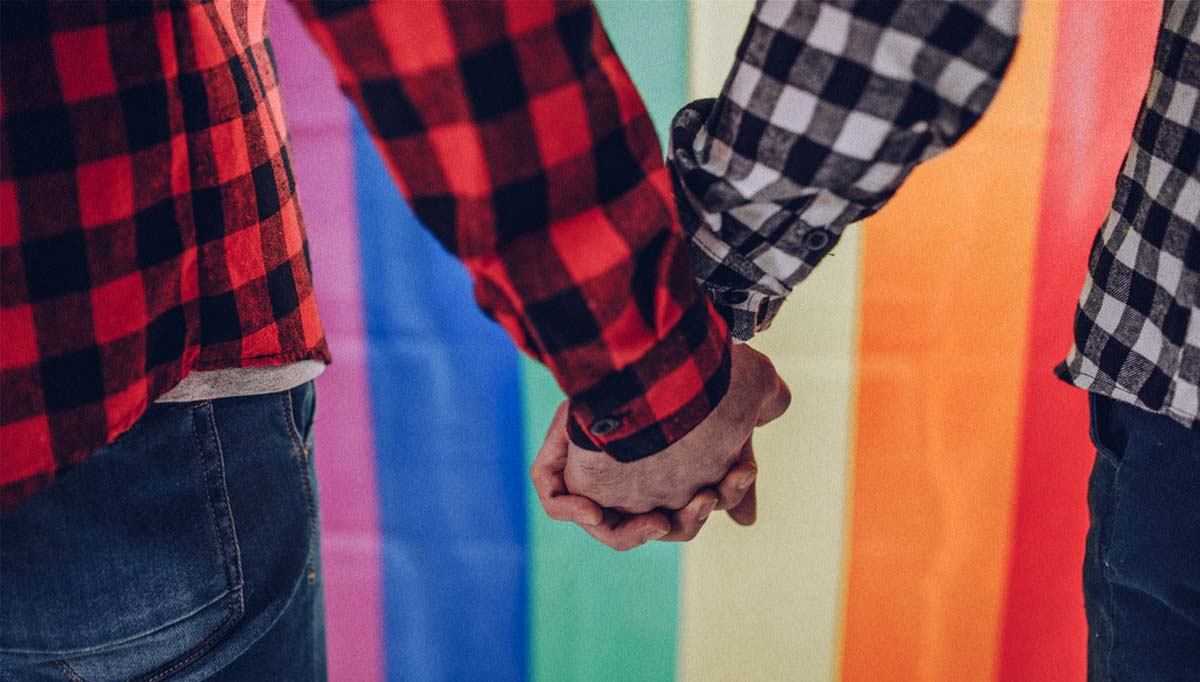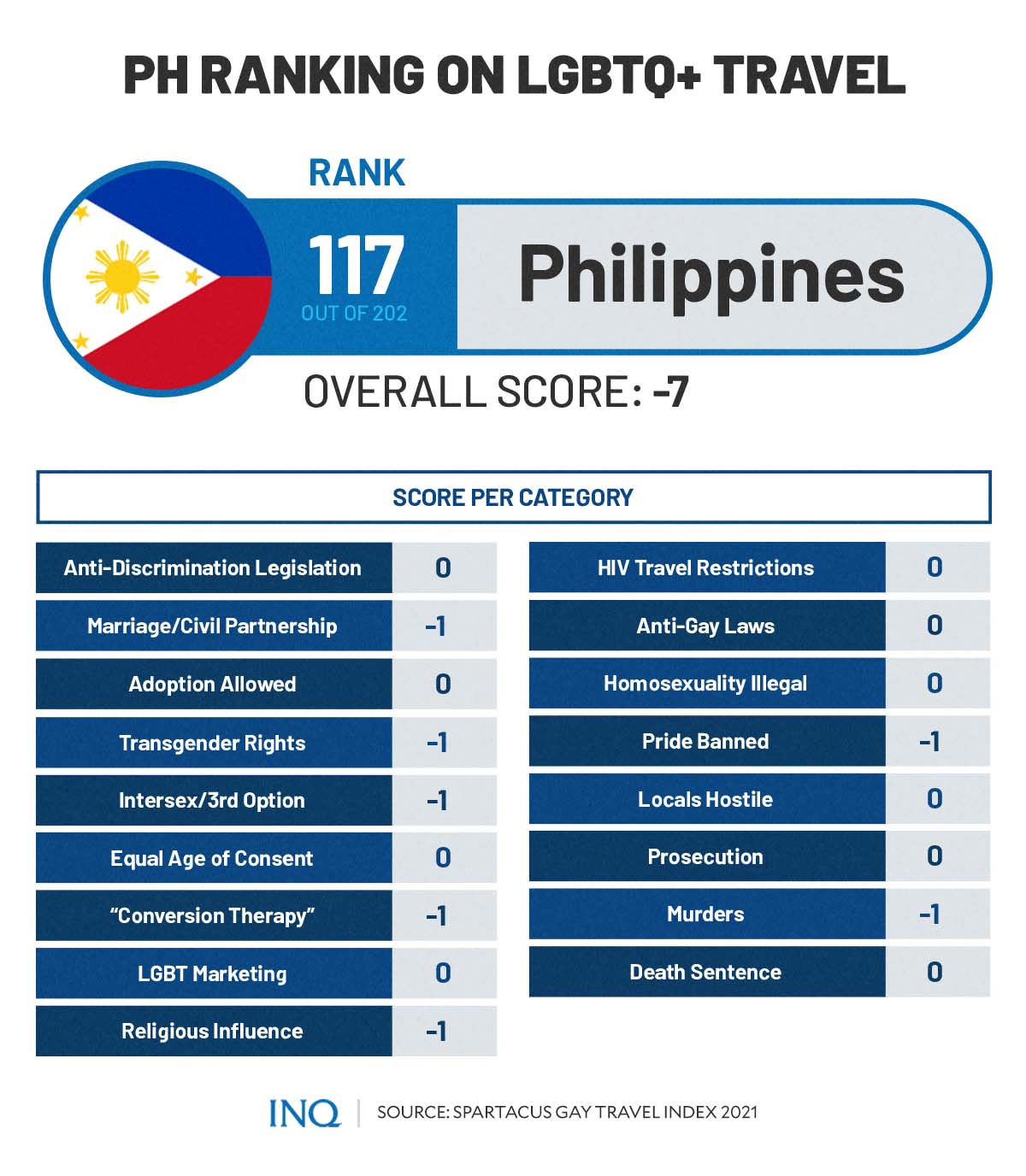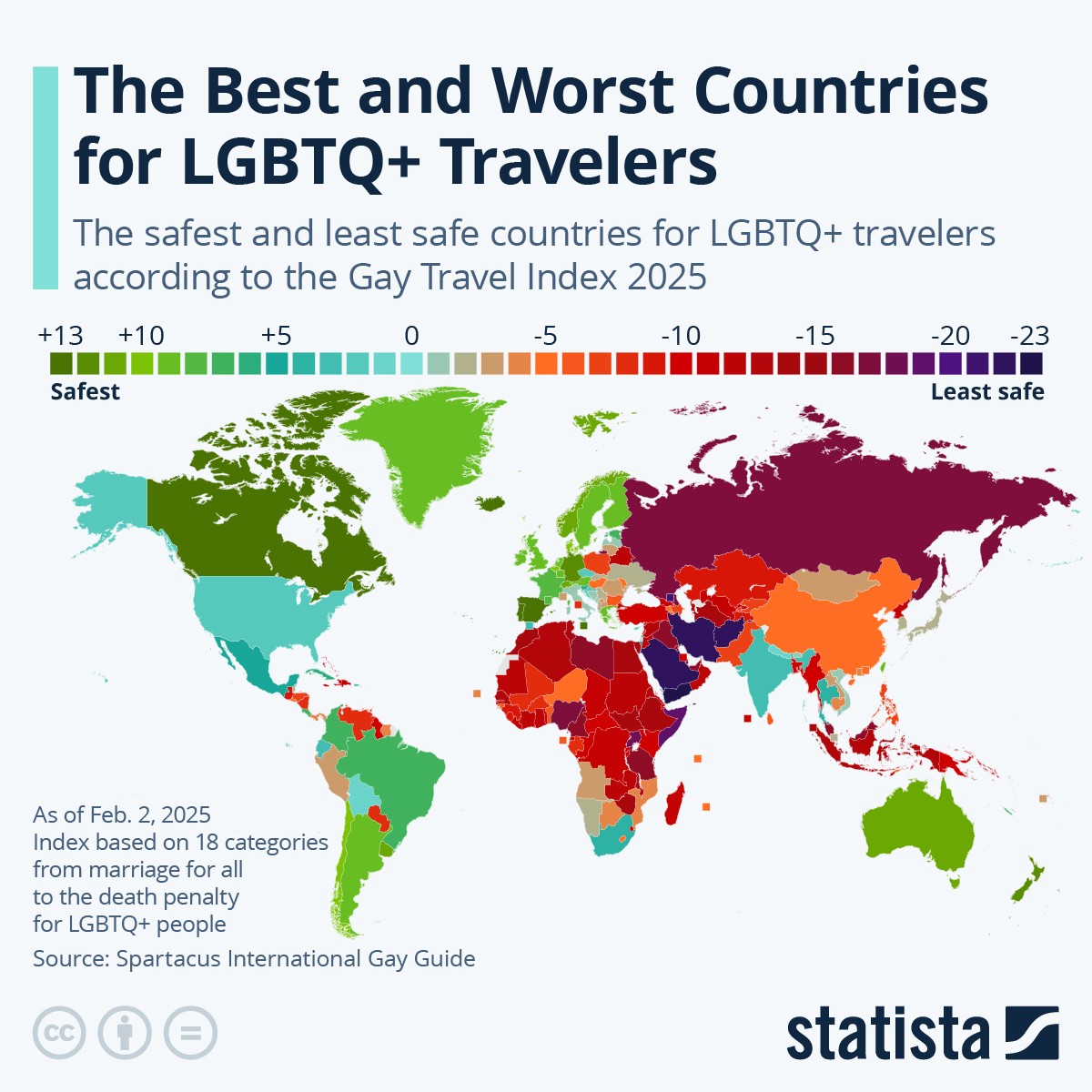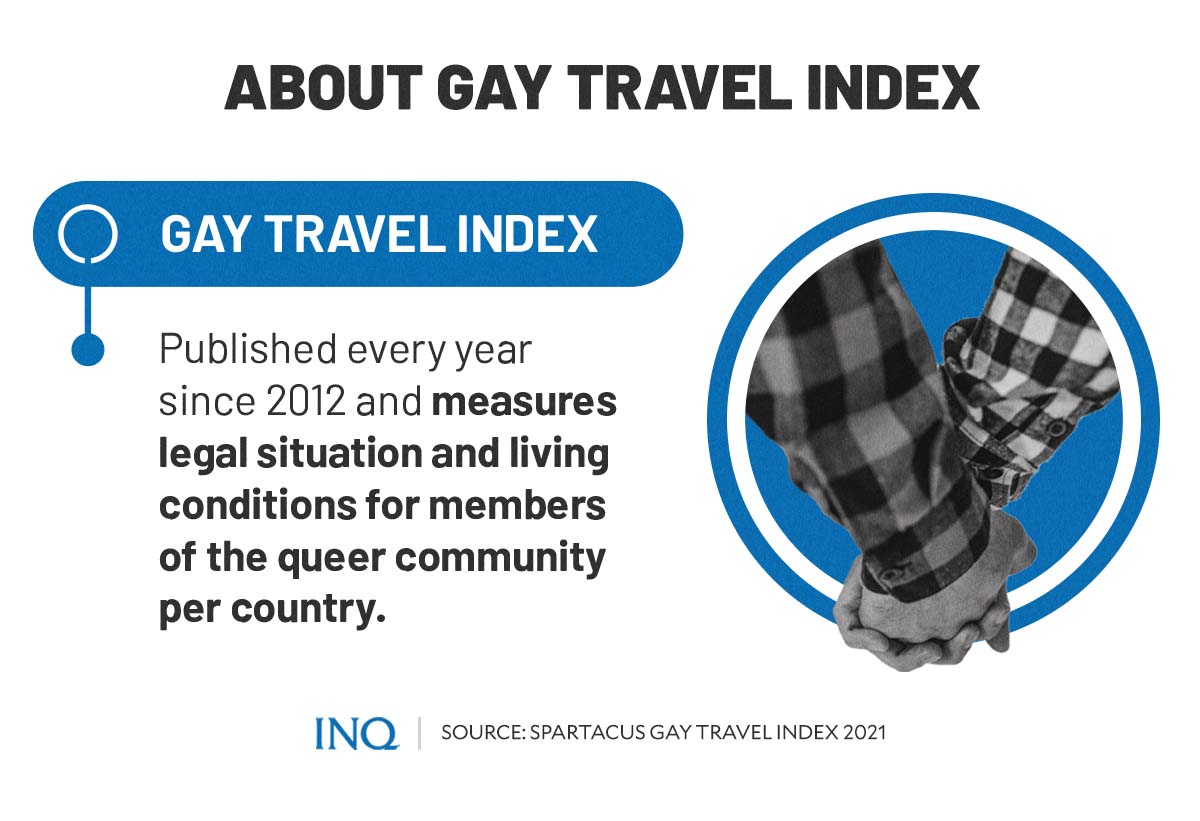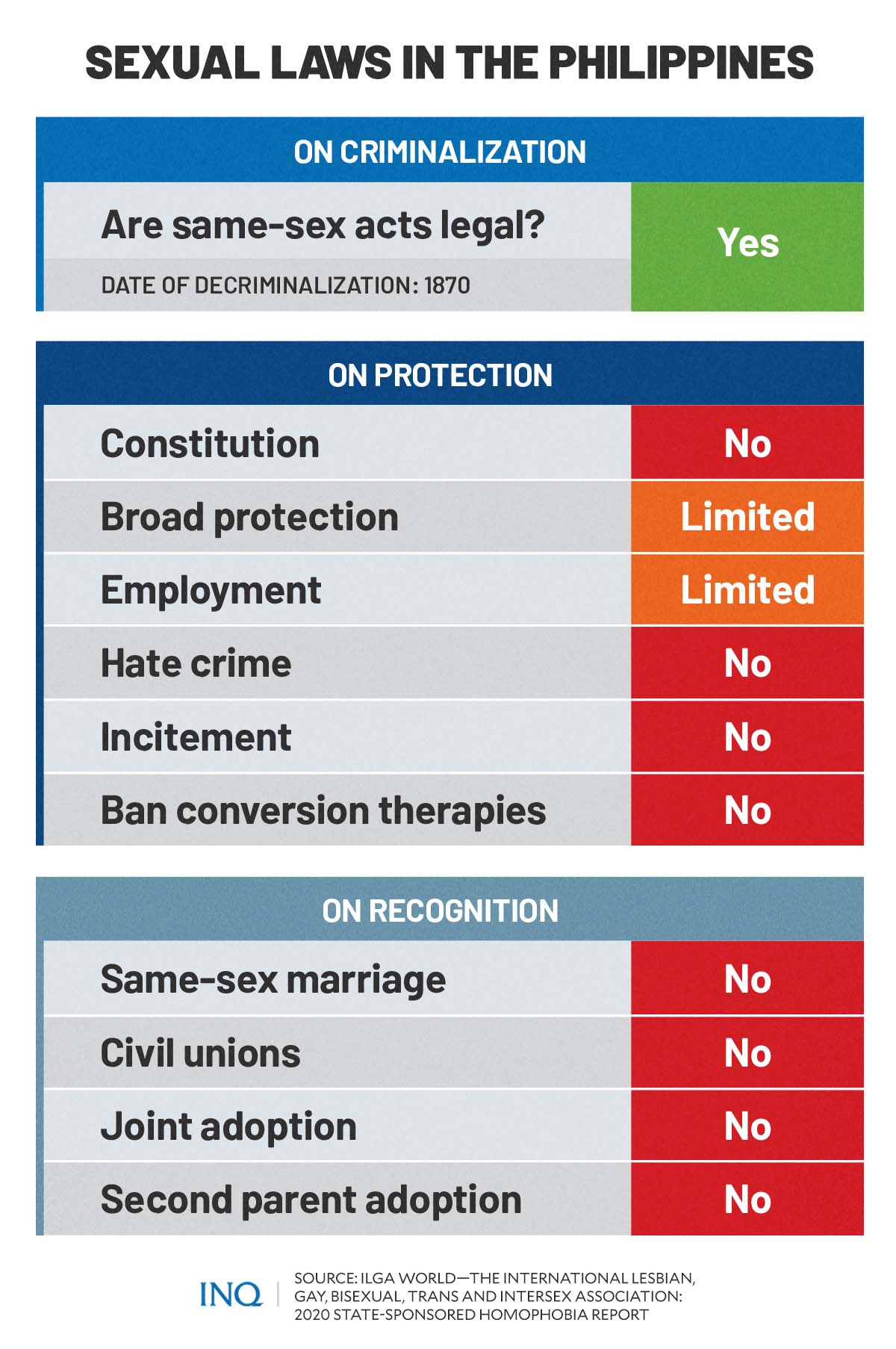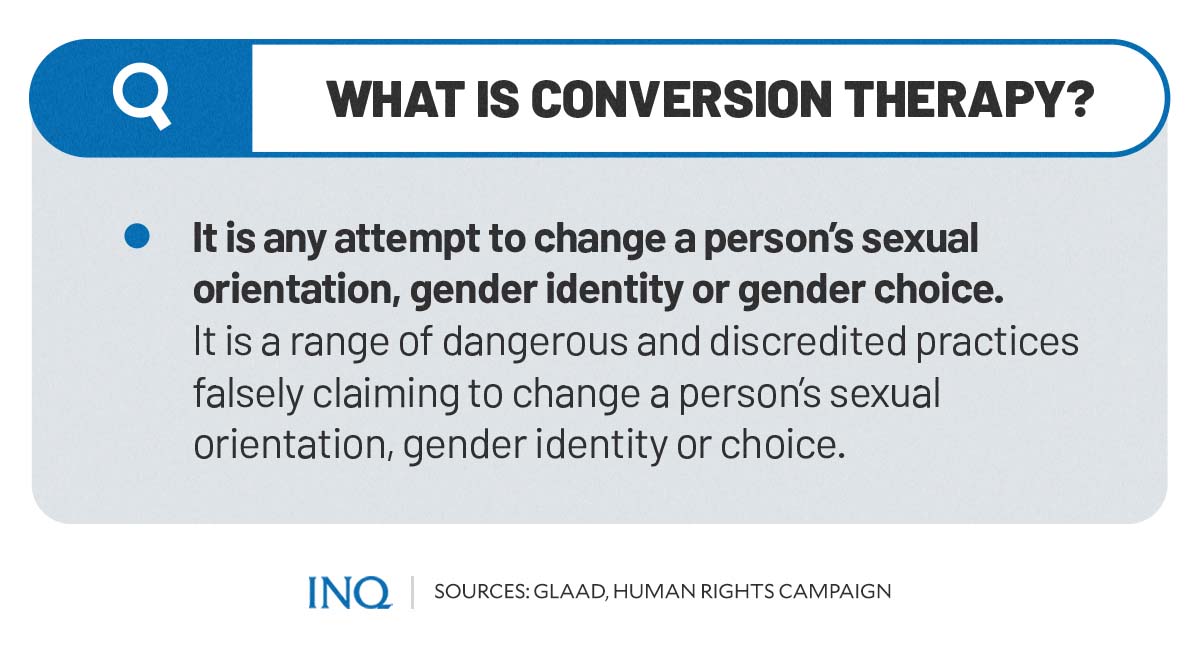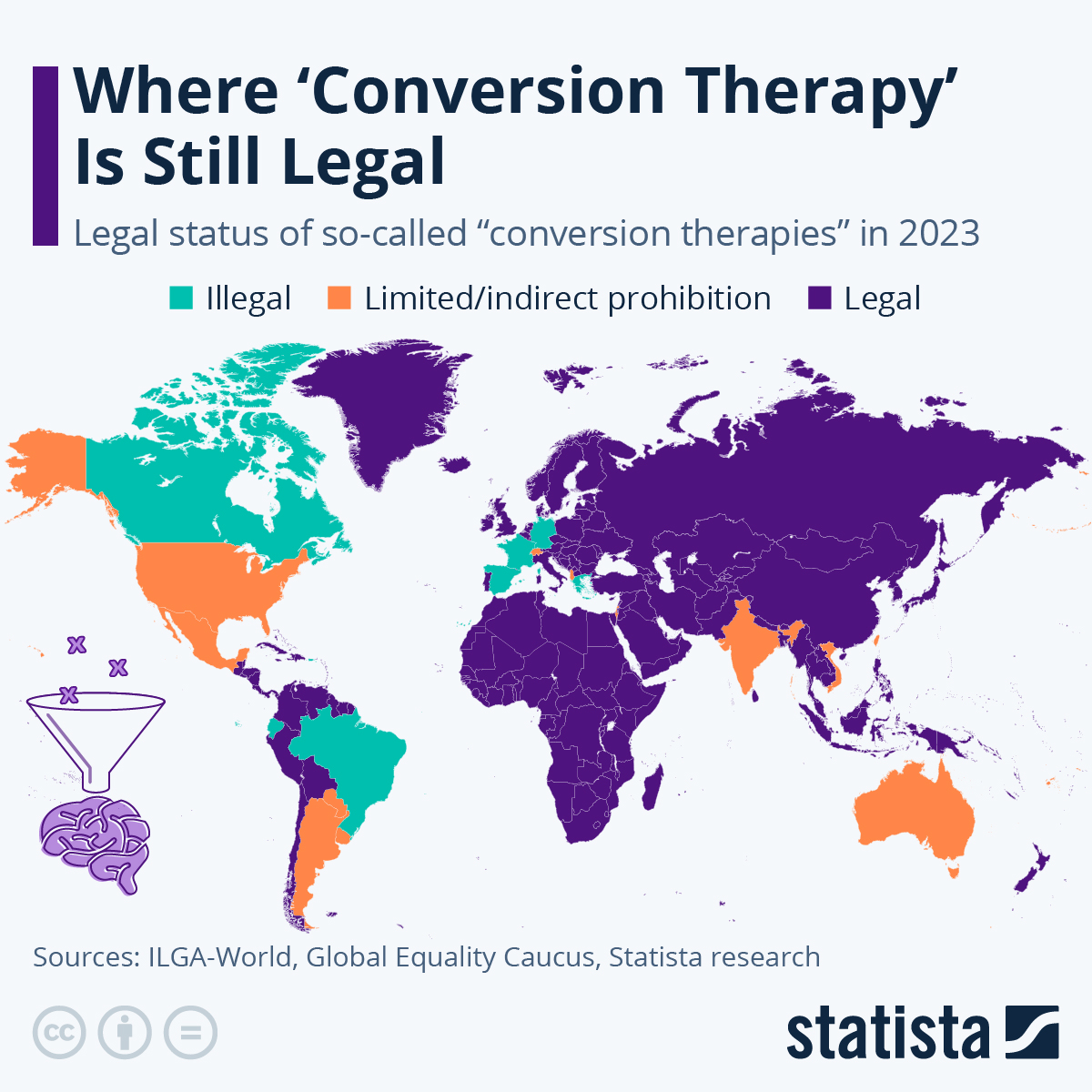Ideal countries for gay travel: PH ranks low
MANILA, Philippines—Almost a decade ago, one global survey named the Philippines as among the few gay-friendly countries in the world. However, a new study has ranked the country as one of the least ideal for LGBTQ+ (Lesbian, Gay, Bisexual, Trans, Queer) travelers.
In 2013, the US-based Pew Research Center released a survey titled “The Global Divide on Homosexuality” and showed that 73 percent of adult Filipinos agreed with the statement that “homosexuality should be accepted by society.”
In the survey, the Philippines ranked 10th out of 39 countries with the majority of its population accepting homosexuality.
READ: PH ranks among most gay-friendly in the world
However, years later, the German portal Spartacus in its 2021 Gay Travel Index, which ranked the best and worst countries for LGBTQ+ travelers, showed that the Philippines ranked 117th out of 202 countries and territories as ideal destinations for gay travelers.
“Spartacus publishes the Gay Travel Index every year since 2012. The index measures the legal situation and living conditions for members of the queer community in the respective country,” Spartacus said in its report.
The index focused on the “political decision-making, legal frameworks and whether episodes of violence against the LGBTQ+ community were recorded in the countries recently.”
READ: The Best and Worst Countries for LGBTQ+ Travelers
“The index attempts at finding a balance between measuring the rights of the local LGBTIQ community and considering the demands of queer holidaymakers,” said Spartacus.
“Our aim is to monitor the safety of queer people in each country and also increase the awareness on grievances,” it added.
Not great choice for LGBTQ+ travelers
The index, according to Spartacus, consisted of 17 categories at present, namely:
- anti-discrimination legislation
- marriage/civil partnership
- adoption allowed
- transgender rights
- intersex/3rd option
- equal age of consent
- “conversion therapy”
- LGBT marketing
- religious influence
- HIV travel restrictions
- anti-gay laws
- homosexuality illegal
- Pride banned
- locals hostile
- prosecution
- murders
- death sentences
Each country was rated per category and their overall score—13 being the highest total score.
“It has a negative impact on the rating of a country, if human rights are not observed nor guaranteed or even worse, violated. A zero rating as the lowest rating is only awarded if a county is lacking in important but not elementary categories such as LGBT marketing or anti-discrimination legislation,” Spartacus explained.
On the map based on the index scores, countries were color-coded—with dark green indicating the most liberal and queer-friendly countries, while red assigned to the most dangerous countries for homosexuals to visit or live in.
Canada was the only country that ranked 1st in the index with a total score of 13. The country, which upholds the Canadian Human Rights Act, received a high score of 3 on the anti-discrimination legislation.
Meanwhile, at the other end of the spectrum were the Republic of Chechnya in Russia (-19 points), Saudi Arabia and Somalia (both with -18 points), and Iran (-17 points).
“The Middle East, North Africa, and Central Asia are the regions least safe for LGBTQ+ travelers, while Latin America proves more welcoming than Asia – with the exception of Taiwan. India and Thailand at least score 1 point on the index, while Nepal ranks at a neutral 0 and Japan scores -2,” said Katharina Buchholz, senior data journalist at consumer company Statista.
The Philippines, which ranked 117th—along with 17 other countries—received a total score of -7. The country scored seven -1 scores in seven different categories. Unfortunately, it did not have any positive scores.
Below are the Philippines’ scores per category:
- Anti-Discrimination Legislation: 0
- Marriage/Civil Partnership: -1
- Adoption Allowed: 0
- Transgender Rights: -1
- Intersex/3rd Option: -1
- Equal Age of Consent: 0
- “Conversion Therapy: -1
- LGBT Marketing: 0
- Religious Influence: -1
- HIV Travel Restrictions: 0
- Anti-Gay Laws: 0
- Homosexuality Illegal: 0
- Pride Banned: -1
- Locals Hostile: 0
- Prosecution: 0
- Murders: -1
- Death Sentence: 0
Sexual orientation laws in PH
A separate report published in 2020 by the International Lesbian, Gay, Bisexual, Trans and Intersex Association (ILGA)—a worldwide federation of more than 1,700 organizations from over 160 countries and territories campaigning for lesbian, gay, bisexual, trans, and intersex human rights—gave a closer look on the sexual orientation laws in countries worldwide, including the Philippines.
The recent “State-Sponsored Homophobia” report, as explained by ILGA, is “a world survey of sexual orientation laws”—which ranges “from criminalization of consensual same-sex sexual acts between adults to protection against discrimination based on sexual orientation.”
The sexual orientation laws covered in the report were divided into three categories: criminalization, protection, and recognition.
Under the three categories were different sub-categories or questions pertaining to the specific sexual orientation laws which might or might not be enacted in countries included in the report.
Below were the observations made by the ILGA in 2020 regarding the sexual orientation laws—or the lack thereof—in the Philippines.
Criminalization
- are same-sex sexual acts legal?: Yes
- date of decriminalization: 1870
- max penalty: none
Protection
- constitution: No
- broad protection: Limited
- employment: Limited
- hate crime: No
- incitement: No
- ban conversion therapies: No
Recognition
- same-sex marriage: No
- civil unions: No
- joint adoption: No
- second parent adoption: No
“The 1870 Spanish Penal Code, which contained no provisions criminalizing same-sex sexual relations between consenting adults, applied in the territory until the approval of the 1932 Revised Penal Code (RPC) which likewise did not include such criminalizing provisions,” the ILGA stated.
The report likewise acknowledged the efforts made by certain local governments on enacting anti-discrimination laws, which criminalize discrimination against individuals based on their sexual orientation.
“In the Philippines, the cities of Dumaguete, Ilagan, Manila, Marikina, Valenzuela, and Zamboanga passed local ordinances that prohibited acts of discrimination against individuals on the basis of their sexual orientation, including employment,” ILGA said.
“This had the effect of expanding the scope of protection at the subnational level, as local activists continue to push for national protections,” it added.
READ: Marikina mayor signs anti-discrimination ordinance
However, on the national level, the Philippine government has yet to push the Sexual Orientation and Gender Identity and Expression (SOGIE) Equality bill.
The bill aims to give equal rights to all persons and prohibits people from discriminating other people based on their SOGIE or sexual orientation, gender identity, or expression.
READ: Terrible misconceptions: Why we need the Sogie Equality Bill
Last June 15, Sen. Risa Hontiveros vowed to “carve the runway to pass the SOGIE Equality Bill at long last” in the 19th Congress.
READ: Hontiveros vows to push for SOGIE bill: ‘We’ll take this to the finish line’
Spotlight on conversion therapy
Conversion therapy is the practice of attempting or forcibly making someone “straight” because society or people perceive homosexuality as a disease that needs to be cured.
“So-called ‘conversion therapy,’ sometimes known as ‘reparative therapy,’ is a range of dangerous and discredited practices that falsely claim to change a person’s sexual orientation or gender identity or expression,” said the Human Rights Campaign, America’s largest civil rights organization working to achieve LGBTQ+ equality.
However, according to the American non-governmental media monitoring organization GLAAD, the practice has come under increasing scrutiny.
As a result, providers or supporters of the practice “frequently change their terminology to avoid detection.”
Other terms used for conversion therapy include:
- Sexual Orientation Change Efforts (SOCE)
- Sexual Attraction Fluidity Exploration in Therapy (SAFE-T)
- Eliminating, reducing, or decreasing the frequency or intensity of unwanted Same-Sex Attraction (SSA)
- Reparative therapy
- Sexual reorientation efforts
- Ex-gay ministry
- Promoting healthy sexuality
- Addressing sexual addictions and disorders
- Sexuality counseling
- Encouraging relational and sexual wholeness
- Healing sexual brokenness
Based on the 2020 State-Sponsored Homophobia report by ILGA, out of the 193 countries and territories in the report, only four countries have fully banned conversion therapy.
Meanwhile, 10 others made limited laws or took legal actions to ban it—or some areas in those countries or territories have banned the practice.
These countries include:
- Argentina: Limited
- Brazil: Banned
- Dominican Republic: Banned
- Mexico: Limited
- Peru: Banned
- Uruguay: Limited
- Canada: Limited
- United States: Limited
- Germany: Banned
- Spain: Limited
- Australia: Limited
- Fiji: Limited
- Nauru: Limited
- Samoa: Limited
In the Philippines, although the practice has not been talked about, gay conversion therapy remains legal.
Other than robbing the human rights of LGBTQ+ individuals, the practice has a very harmful impact—especially on highly rejected younger LGBTQ+ people.
Among its dangers, according to a 2010 study by students from San Francisco State University published in the Journal of Child and Adolescent Psychiatric Nursing, include:
- 8.4x of highly rejected LGBT adolescents are more likely to report having attempted suicide
- 5.9x of highly rejected LGBT adolescents are more likely to report high levels of depression
- 3.4x of highly rejected LGBT adolescents are more likely to use illegal drugs
- 3.4x of highly rejected LGBT adolescents are more likely to be at high risk of HIV and STDs
In the United Kingdom, the British Psychological Society and Royal College of Psychiatrists declared last year that all kinds of conversion therapy are “unethical and potentially harmful.”
